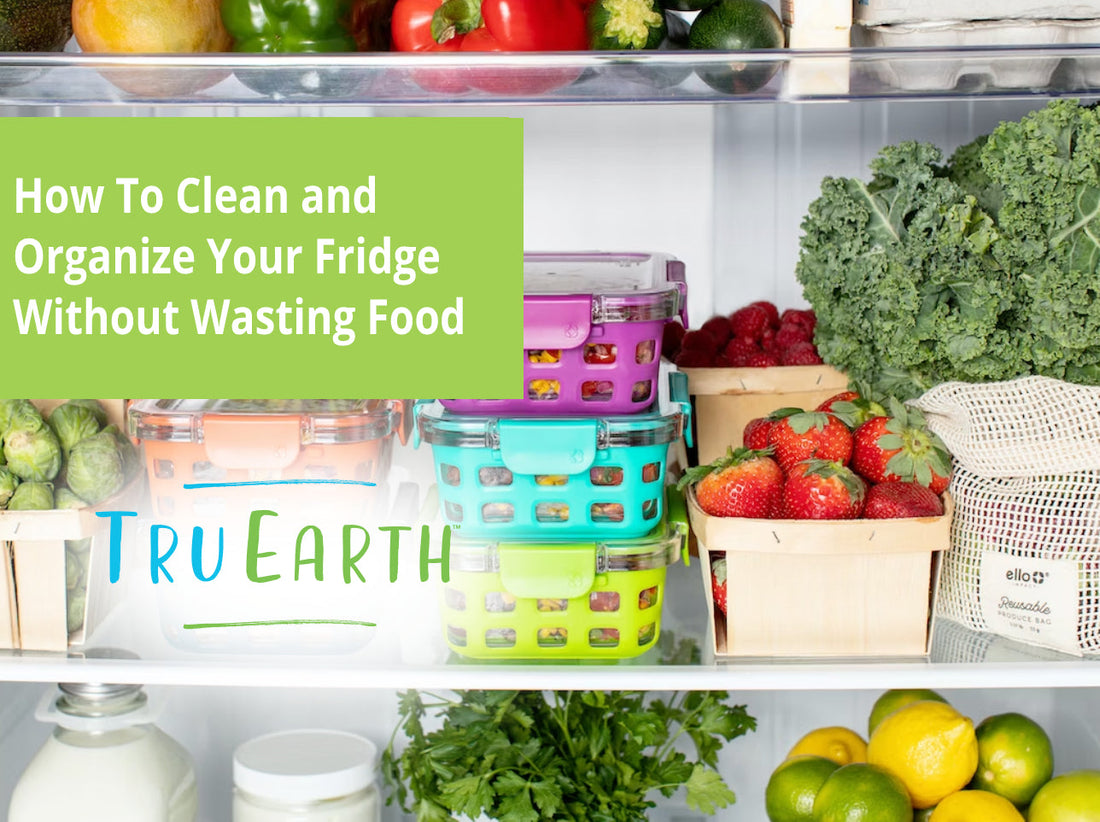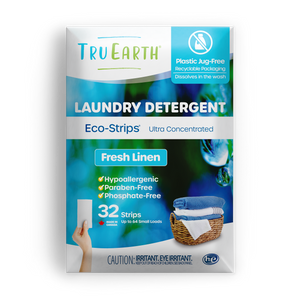Have you ever opened your fridge and felt overwhelmed with the clutter and mess? Do you struggle with keeping track of expiration dates and end up wasting food? Not only can a disorganized fridge be frustrating, but it can also be wasteful and costly.
The good news is that cleaning and organizing your fridge doesn't have to be an irritating task. With some thoughtful planning and a few simple tips, you can transform your fridge into an oasis of freshness and efficiency.
By doing so, you not only save money but also contribute to a more sustainable lifestyle. Here are some of our best tips on how to clean your fridge without wasting food, and keep it clean!

Don’t Overstuff Your Fridge
When it comes to keeping your food fresh, it's important that you don't overstuff your fridge. Not only does it make it harder for you to find what you're looking for, but it also impacts the overall efficiency of your fridge. If you fill every nook and cranny with food, the cool air won't be able to circulate properly.
This can lead to hot spots or pockets of warm air, which can cause your food to go bad much faster than it normally would. In addition, if you're constantly opening and closing an overstuffed fridge, you'll let out cool air, which will cause your fridge to work even harder to maintain its temperature. This can lead to higher energy bills and a shorter lifespan for your fridge.
To avoid these issues, it's best to keep your fridge neat and organized, with plenty of space for air to flow through. This will not only help your food stay fresh for longer but also make your fridge run more efficiently.
Buy Less and Shop More Frequently
Reducing food waste has become an increasingly important issue in our society, and making small changes in our grocery shopping habits can go a long way in helping to combat this problem. One simple yet effective way to reduce food waste at home is to shop more regularly and buy fewer items at a time.
This allows us to better estimate how much we will need in the near future and avoid overbuying, which often results in spoiled or expired food. Before purchasing any perishable item, take a moment to think about how and when you will use it.
Consider buying smaller quantities of fridge items that you frequently throw away, as this will help you to avoid waste while also saving money. With a little bit of careful planning and mindful shopping, we can all do our part to reduce food waste and make our planet a healthier place for all.
Make the Most of Your Freezer
Freezing food is an excellent way to prevent waste and save money in the long run. There are two primary approaches to take when using this method. The first is to cook or prepare large batches of food with the specific intention of freezing them for future use. This is an efficient and straightforward way to plan and ensure that you always have a healthy meal.
Additionally, it saves time and energy since you can cook in larger quantities and then heat up individual portions as needed.

The second approach is to save leftovers that won't be used before they go bad in the fridge. This method is especially useful for individuals who live alone or for people who have busy schedules and don't have the time to cook every day. By storing leftovers in the freezer, you can avoid throwing away perfectly good food and reduce your grocery bill in the process.
Ensure You Are Storing Food Items Properly
When it comes to preserving freshness and extending the shelf life of perishable items, proper storage is key. For instance, leafy greens can stay crisp for much longer if stored with a lightly damped dishcloth in an airtight container after washing. This prevents excess moisture from building up and causing decay.
Additionally, refrigerating ingredients like nuts and seeds, which are typically kept in the pantry, can help keep them fresh for a longer period. To ensure maximum freshness, it's best to store these items in mason jars in the fridge. Doing so can double their shelf life, taking them from three months in the pantry to six months in the fridge.
By taking steps to store your food items properly you can not only reduce the amount of waste you produce but also save money by minimizing the need to replace items that spoil before their time. Overall, it's a simple yet effective way to make a positive impact on both your budget, the environment, and your kitchen.
Don't Take Expiration Dates Too Seriously
It is a commonly held misconception that the expiration date on food packaging signifies that the product will be unsafe to consume after that date. In reality, these dates are not federally regulated and are often just estimates of when the food will reach its peak quality. This means that even if the date has passed, the food may still be safe to eat. It is important to use your senses to determine whether the food is still fresh and edible.
If it looks, smells, and tastes normal, then it is likely still in good condition. However, it is important to remember that the real danger comes from contamination by bacteria or other harmful microorganisms. While most people do not fall ill from consuming expired food, consuming contaminated food can result in serious health consequences.
Therefore, it is crucial always to practice safe food handling and storage to minimize the risk of contamination. By following these guidelines, you can ensure that you and your family can enjoy your food safely and without worry.

Ready To Revitalize Your Fridge?
Cleaning and organizing your fridge doesn't have to result in wasted food. With a little bit of planning and mindfulness, you can prevent spoilage and make the most of what you have. By implementing simple strategies such as grouping like-items together, labeling containers with expiration dates, and regularly checking and rotating stock, you can ensure that the food in your fridge stays fresh and delicious for longer.
Remember, next time you're faced with a cluttered and disorganized fridge, take the time to give it a good clean and implement these tips to keep your fridge and your food in top shape.


